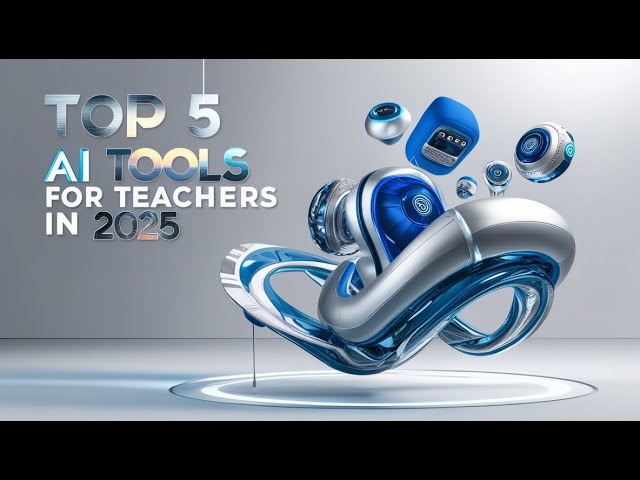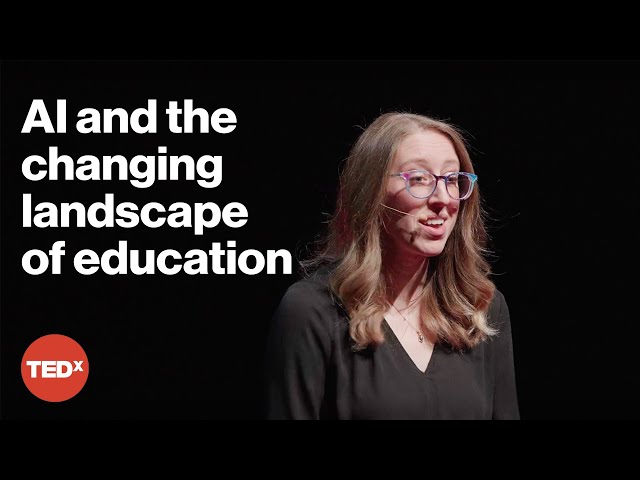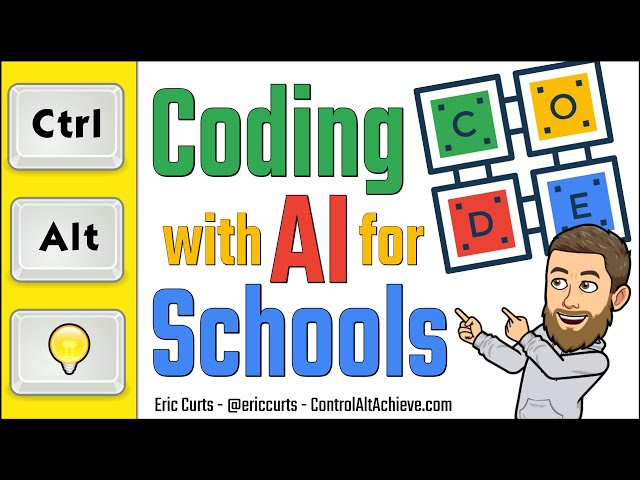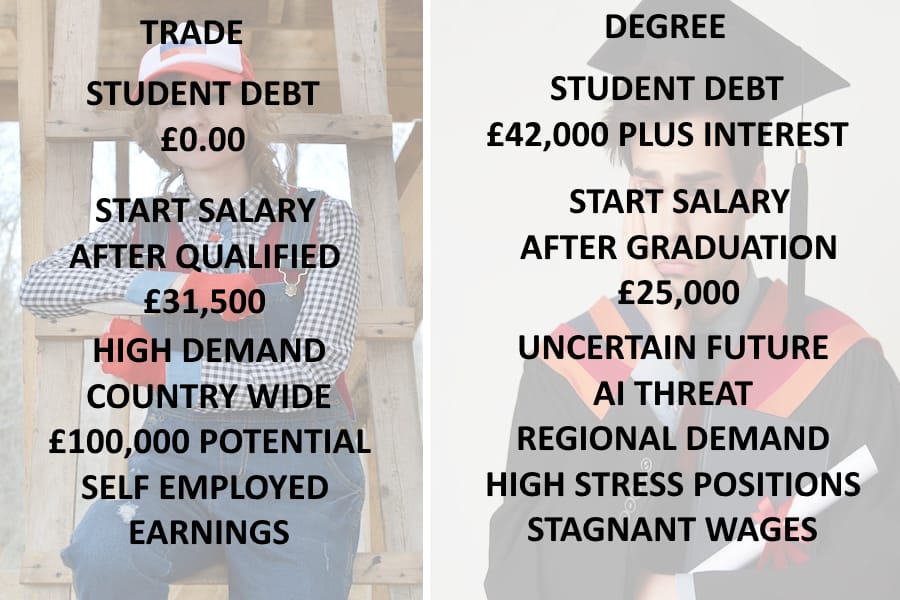Why UK Schools Failing to Teach AI Are Letting Down Their Students

Publish Date: Last Updated: 14th May 2025
Author: nick smith- With the help of GROK3
In an era defined by rapid technological advancement, artificial intelligence (AI) is no longer a futuristic concept—it’s a fundamental part of our daily lives. From healthcare to transportation, AI is transforming industries and creating new opportunities. Yet, many schools in the UK are lagging behind, failing to equip students with the skills to navigate this AI-driven world. Any school that does not teach its children how to use AI is failing them, denying them the tools to succeed in a future where adaptability, critical thinking, and digital literacy are paramount. This article explores why integrating AI into education is essential and how it can revolutionize teaching across subjects like coding, physics, chemistry, and beyond.
AI in Education Videos from YouTube

Top 5 AI Tools for Teachers in 2025
YouTube Channel: The Teacher's Toolbox

Should we let students use ChatGPT? | Natasha Berg | TEDxSioux Falls
YouTube Channel: TEDx Talks

Coding with AI for Schools
YouTube Channel: Eric Curts

How AI Could Save (Not Destroy) Education | Sal Khan | TED
YouTube Channel: TED
The Case for AI in UK Schools
The UK has long prided itself on its education system, but the world is changing faster than curriculums can keep up. A 2023 report from the British Computer Society highlighted that 87% of UK employers now seek employees with digital skills, with AI proficiency increasingly in demand. By not teaching AI, schools are leaving students unprepared for the job market, where roles in data science, software development, and even creative industries require an understanding of AI tools and concepts.
Beyond employability, AI fosters critical thinking, problem-solving, and creativity—skills at the heart of a well-rounded education. Unlike traditional teaching methods, AI offers a personalized, patient, and unbiased approach to learning, making it an invaluable guide for students across all subjects. Here’s how AI can transform education in specific disciplines.
AI as a Teaching Tool: Subject-by-Subject Breakdown
1. Coding: Building the Future with AI
Coding is the backbone of the digital age, and AI can make it accessible to every student. Tools like GitHub Copilot or Replit with AI assistance can suggest code, debug errors, and explain concepts in real-time. For beginners, AI can break down complex syntax into simple steps, while advanced learners can use it to explore machine learning algorithms or game development.
Imagine a Year 9 student tasked with writing a Python program. An AI tool could guide them through loops and conditionals, offering examples tailored to their pace. Unlike a teacher juggling 30 students, AI never loses patience, ensuring no child feels left behind. This hands-on, interactive approach not only teaches coding but also demystifies AI itself, showing students how it works under the hood.
2. Physics: Simulating the Universe
Physics often involves abstract concepts like gravity, electromagnetism, or quantum mechanics that can be hard to grasp through textbooks alone. AI-powered simulations, such as those offered by PhET or Wolfram Alpha, allow students to experiment with variables in virtual labs. Want to see how changing mass affects gravitational pull? AI can instantly model it, providing visual and numerical feedback.
Moreover, AI can pose real-world problems—like designing a bridge or calculating planetary orbits—and guide students through the physics step-by-step. Its ability to process vast datasets also introduces students to cutting-edge topics like astrophysics or climate modeling, preparing them for university-level research.
3. Chemistry: Experimenting Without the Risks
Chemistry labs are exciting but resource-intensive and sometimes dangerous. AI tools like ChemCollective or Google’s AI-driven Molecule Maker let students conduct virtual experiments, mixing chemicals and observing reactions without the need for a fume hood. AI can explain molecular bonding, predict reaction outcomes, and even suggest applications in drug design or materials science.
For example, a student studying acids and bases could ask an AI tutor, “What happens if I combine sulfuric acid with sodium hydroxide?” The AI would provide a detailed explanation, complete with equations and visuals, all while remaining patient with follow-up questions. This scalability makes advanced chemistry accessible even to underfunded schools.
4. Mathematics: Personalized Problem-Solving
Math can be intimidating, but AI tools like Photomath or Khan Academy’s AI-driven exercises adapt to a student’s skill level. They offer hints, alternative methods, and step-by-step solutions, ensuring mastery of algebra, calculus, or statistics. AI’s lack of frustration means it can repeat explanations endlessly, building confidence in struggling learners.
5. Humanities: Enhancing Critical Analysis
Even in subjects like history or English, AI shines. Tools like Grammarly or Jasper can help students refine essays, while AI-driven research assistants can summarize historical events or analyze literary themes. By removing bias—unlike human teachers who might unconsciously favor certain perspectives—AI ensures a fair, objective learning experience.
The Unique Advantages of AI in Education
1. A Patient, Unbiased Guide
Human teachers, while invaluable, have limits. They can grow frustrated, show unintentional bias, or lack time to address every student’s needs. AI, by contrast, is infinitely patient. It doesn’t judge a student for asking “dumb” questions or needing repeated explanations. This creates a safe space for learning, especially for shy or struggling students.
2. Personalization at Scale
AI can tailor lessons to individual learning styles—visual, auditory, or kinesthetic—something impossible for a single teacher in a crowded classroom. It can adjust difficulty, suggest resources, and track progress, ensuring every child reaches their potential.
3. Preparing Students for an AI-Driven World
Beyond academics, AI literacy is a life skill. Students who understand how to use AI tools—whether for research, creativity, or problem-solving—will thrive in higher education and careers. Schools that ignore this are not just failing to teach a subject; they’re failing to prepare students for reality.
The Risks of Falling Behind
UK schools that resist AI integration risk widening the opportunity gap. Private institutions and well-funded academies are already adopting AI tools, giving their students an edge. State schools, often constrained by budgets and outdated policies, could leave their students—disproportionately from disadvantaged backgrounds—at a permanent disadvantage. The Department for Education must act, embedding AI into the national curriculum and training teachers to use it effectively.
Conclusion: A Call to Action for UK Schools
AI is not a replacement for teachers but a powerful ally. By teaching children how to use AI, schools can unlock new ways to learn coding, physics, chemistry, and more, all while fostering resilience and curiosity. Any UK school that neglects this responsibility is failing its students, condemning them to a future they’re unprepared to shape. The time to act is now—because in an AI-driven world, ignorance is not an option.
Trending AI News Articles
AI Questions and Answers section for Why UK Schools Failing to Teach AI Are Letting Down Their Students
Welcome to a new feature where you can interact with our AI called Jeannie. You can ask her anything relating to this article. If this feature is available, you should see a small genie lamp above this text. Click on the lamp to start a chat or view the following questions that Jeannie has answered relating to Why UK Schools Failing to Teach AI Are Letting Down Their Students.
Be the first to ask our Jeannie AI a question about this article
Look for the gold latern at the bottom right of your screen and click on it to enable Jeannie AI Chat.







